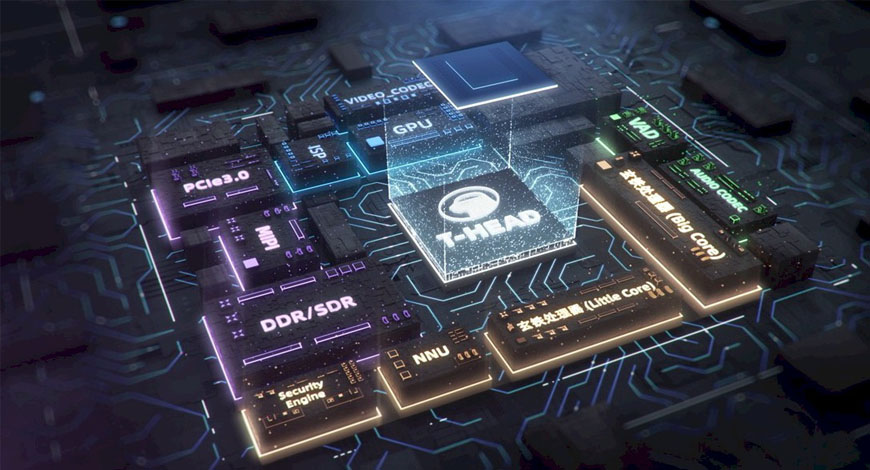Company News
Alibaba’s chip unit T-Head steps up RISC-V development

T-Head, the chip unit of Alibaba Group Holding, is putting more effort into RISC-V chips, as China bets on the open-source chip design architecture as a means of achieving greater self-sufficiency in the semiconductor space in the face of US sanctions.
Separately, Alipay, the payment service of Alibaba affiliate Ant Group, said it plans to introduce chips that will enable secure payment functions on wearable devices. The chips, also based on RISC-V, are being jointly developed by Alipay and T-Head.
Meng Jianyi, vice-president of T-Head, said the unit is launching an initiative to encourage around 150,000 developers to learn about and get international credentials on the open-source chip design architecture. It is also looking into expanding the technology’s commercial applications with business partners, said Meng, who was speaking at the unit’s first conference on the RISC-V ecosystem in Shanghai on Thursday. Alibaba owns the South China Morning Post.
“The development of RISC-V requires global innovation collaboration, from chips to software, applications and terminals,” said Meng at the conference, which has been described as the largest conference to date on RISC-V development in China. “T-Head is pulling together the major ecosystems so that global developers and partners can better use and develop RISC-V technologies.”
The move by Alibaba comes amid broader efforts by China to develop the open-source chip design architecture as the country pushes for greater self-reliance in semiconductors. China is currently subject to tough US trade restrictions on the export of advanced chips and equipment to the country.
RISC-V is an open-source chip design architecture created in 2010 by University of California, Berkeley, which has become a new hope for China as the country moves to reduce its dependence on foreign technologies.
Currently X86, developed by US tech giant Intel Corp, is the dominant chip design architecture for desktop and laptop computers, while the design architecture behind most smartphone chips in the world is controlled by British firm Arm.
In July 2018, Shanghai introduced specific financial incentives to encourage companies to develop RISC-V processors and related intellectual property (IP) cores, a major step by the country to kick-start RISC-V development.
Ni Guangnan, a member of the Chinese Academy of Engineering, said at the conference that RISC-V has already become “the most popular architecture in the Chinese central processing unit field” and “a new engine to promote the development of next-generation information technology”.
Alibaba has been actively pushing forward the development and application of RISC-V in the country, launching a total of eight RISC-V processors so far through T-Head, which was set up in 2018.
“We see RISC-V coming out in full force in data centres and cloud implementations, and being leveraged quickly for artificial intelligence acceleration … and Alibaba has really stepped out to be a leader in the ecosystem,” said Calista Redmond, CEO of RISC-V International, the non-profit home of the open-standard RISC-V Instruction Set Architecture.
T-Head has also been accelerating the chip architecture’s commercial application in China, aiming to bring RISC-V chips to both consumer and industrial fields.
The unit is currently working on a project with Alipay, the popular mobile payment application created by Alibaba affiliate Ant Group, to bring payment functions to wearable devices, such as smartwatches through embedded RISC-V chips, according to Lin Zhengmao, director of Innovative Payment Technologies at Alipay. The first batch of such devices with embedded chips is expected to hit the market in March, he added.
However, some developers at the conference noted that the chip architecture still faces a number of challenges.
Developers currently face high costs and difficulties with algorithm compatibility when adopting the RISC-V architecture, said Li Gangqiao, a technician at NetEase. The video gaming firm partners with T-Head on neural network processing units for smart learning devices developed by its education technology unit Youdao. South China Morning Post













You must be logged in to post a comment Login